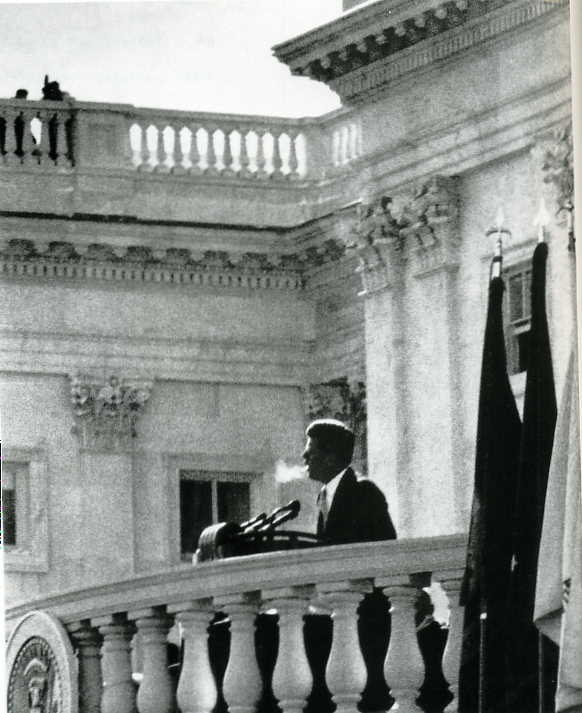
JFK INAUGURAL ADDRESS
John Fitzgerald Kennedy, age 43
35th President of the United States
January 20th, 1961
We observe today not a victory of party but a celebration of freedom, symbolizing an end as well as a beginning, signifying renewal as well as change. For I have sworn before you and Almighty God the same solemn oath our forebears prescribed nearly a century and three-quarters ago.
The world is very different now. For man holds in his mortal hands the power to abolish all forms of human poverty and all forms of human life. And yet the same revolutionary beliefs for which our forebears fought are still at issue around the globe, the belief that the rights of man come not from the generosity of the state but from the hand of God.
We dare not forget today that we are the heirs of that first revolution. Let the word go forth from this time and place, to friend and foe alike, that the torch has been passed to a new generation of Americans, born in this century, tempered by war, disciplined by a hard and bitter peace, proud of our ancient heritage, and unwilling to witness or permit the slow undoing of those human rights to which this nation has always been committed, and to which we are committed today at home and around the world.
Let every nation know, whether it wishes us well or ill, that we shall pay any price, bear any burden, meet any hardship, support any friend, oppose any foe to assure the survival and the success of liberty.
This much we pledge -- and more.
To those old allies whose cultural and spiritual origins we share, we pledge the loyalty of faithful friends. United, there is little we cannot do in a host of cooperative ventures. Divided, there is little we can do, for we dare not meet a powerful challenge at odds and split asunder.
To those new states whom we welcome to the ranks of the free, we pledge our word that one form of colonial control shall not have passed away merely to be replaced by a far more iron tyranny. We shall not always expect to find them supporting our view. But we shall always hope to find them strongly supporting their own freedom, and to remember that, in the past, those who foolishly sought power by riding the back of the tiger ended up inside.
To those people in the huts and villages of half the globe struggling to break the bonds of mass misery, we pledge our best efforts to help them help themselves, for whatever period is required, not because the Communists may be doing it, not because we seek their votes, but because it is right. If a free society cannot help the many who are poor, it cannot save the few who are rich.
To our sister republics south of our border, we offer a special pledge: to convert our good words into good deeds, in a new alliance for progress, to assist free men and free governments in casting off the chains of poverty. But this peaceful revolution of hope cannnot become the prey of hostile powers. Let all our neighbors know that we shall join with them to oppose aggression or subversion anywhere in the Americas. And let every other power know that this hemisphere intends to remain the master of its own house.
To that world assembly of sovereign states, the United Nations, our last best hope in an age where the instruments of war have far outpaced the instruments of peace, we renew our pledge of support: to prevent it from becoming merely a forum for invective, to strengthen its shield of the new and the weak, and to enlarge the area in which its writ may run.
Finally, to those nations who would make themselves our adversary, we offer not a pledge but a request: that both sides begin anew the quest for peace, before the dark powers of destruction unleashed by science engulf all humanity in planned or accidental self-destruction.
We dare not tempt them with weakness. For only when our arms are sufficient beyond doubt can we be certain beyond doubt that they will never be employed.
But neither can two great and powerful groups of nations take comfort from our present course -- both sides overburdened by the cost of modern weapons, both rightly alarmed by the steady spread of the deadly atom, yet both racing to alter that uncertain balance of terror that stays the hand of mankind's final war.
So let us begin anew, remembering on both sides that civility is not a sign of weakness, and sincerity is always subject to proof. Let us never negotiate out of fear, but let us never fear to negotiate.
Let both sides explore what problems unite us instead of belaboring those problems which divide us.
Let both sides, for the first time, formulate serious and precise proposals for the inspection and control of arms, and bring the absolute power to destroy other nations under the absolute control of all nations.
Let both sides seek to invoke the wonders of science instead of its terrors. Together let us explore the stars, conquer the deserts, eradicate disease, tap the ocean depths and encourage the arts and commerce.
Let both sides unite to heed in all corners of the Earth the command of Isaiah to "undo the heavy burdens...[and] let the oppressed go free."
And if a beachhead of cooperation may push back the jungle of suspicion, let both sides join in creating a new endeavor, not a new balance of power, but a new world of law, where the strong are just and the weak secure and the peace preserved.
All this will not be finished in the first one hundred days. Nor will it be finished in the first one thousand days, nor in the life of this Administration, nor even perhaps in our lifetime on this planet. But let us begin.
In your hands, my fellow citizens, more than mine, will rest the final success or failure of our course. Since this country was founded, each generation of Americans has been summoned to give testimony to its national loyalty. The graves of young Americans who answered the call to service surround the globe.
Now the trumpet summons us again -- not as a call to bear arms, though arms we need; not as a call to battle, though embattled we are; but a call to bear the burden of a long twilight struggle, year in and year out, "rejoicing in hope, patient in tribulation," a struggle against the common enemies of man: tyranny, poverty, disease and war itself.
Can we forge against these enemies a grand and global alliance, North and South, East and West, that can assure a more fruitful life for all mankind? Will you join in that historic effort?
In the long history of the world, only a few generations have been granted the role of defending freedom in its hour of maximum danger. I do not shrink from this responsibility; I welcome it. I do not believe that any of us would exchange places with any other people or any other generation. The energy, the faith, the devotion which we bring to this endeavor will light our country and all who serve it, and the glow from that fire can truly light the world.
And so, my fellow Americans, ask not what your country can do for you; ask what you can do for your country.
My fellow citizens of the world, ask not what America will do for you, but what together we can do for the freedom of man.
Finally, whether you are citizens of America or citizens of the world, ask of us here the same high standards of strength and sacrifice which we ask of you. With a good conscience our only sure reward, with history the final judge of our deeds, let us go forth to lead the land we love, asking His blessing and His help, but knowing that here on earth God's work must truly be our own.
~ President John Fitzgerald Kennedy ~
watch President Kennedy 1961 Inaugural Address, YouTube
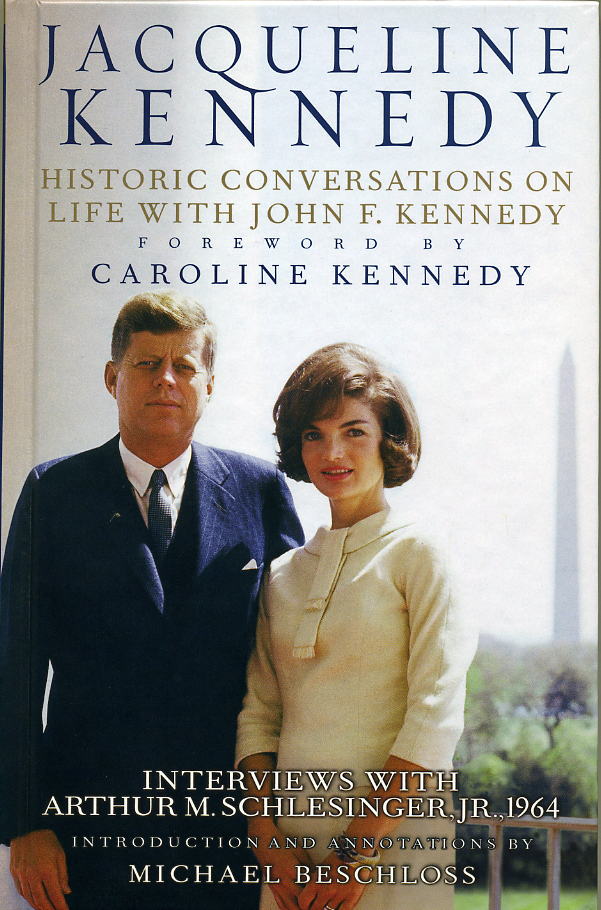

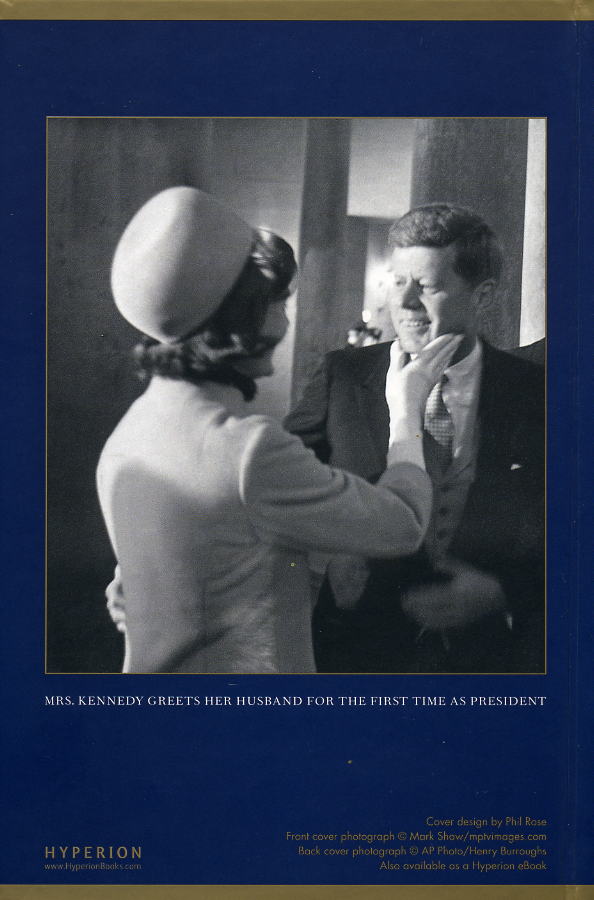 JACQUELINE KENNEDY: HISTORIC CONVERSATIONS ON LIFE WITH JFK
JACQUELINE KENNEDY: HISTORIC CONVERSATIONS ON LIFE WITH JFK
...Well, you could see Robert Frost, it was such a glare from the snow that he really couldn't see what was written on the paper. And then Lyndon got up and held his hat over it, but the poor man still couldn't see. And he looked like he was going to cry, he just sounded so sad, but then, thank heavens, he knew "The Gift Outright". And oh, watching Jack when he said that and everything. And then I never had a chance -- as I was sitting about three away and everyone says, "Why didn't Jack kiss you after?" -- which of course, he would never do there. But you had to march out in such order that I was about eight behind him -- with women, or something. And I so badly wanted to see him before the lunch, just to see him alone. I went to a room with all the ladies, where they had sherry and coffee, and he was with the men. And I caught up to him in the Capitol and, oh, I was just so proud of him. And there's a picture where I have my hand on his chin and he's just looking at me and there really were tears in his eys. Suddenly a flash came because I didn't think there was anyone there. In the papers it said, "Wife chucks him under chin". I mean, that was so much more emotional than any kiss because his eyes really did fill with tears. [whispers] Just say, "Oh, Jack" -- you know -- "what a day!" And then the lunch in the old Supreme Court chamber in the Capitol. I remember everybody was sending their little menu card around to be autographed, it was very jolly....
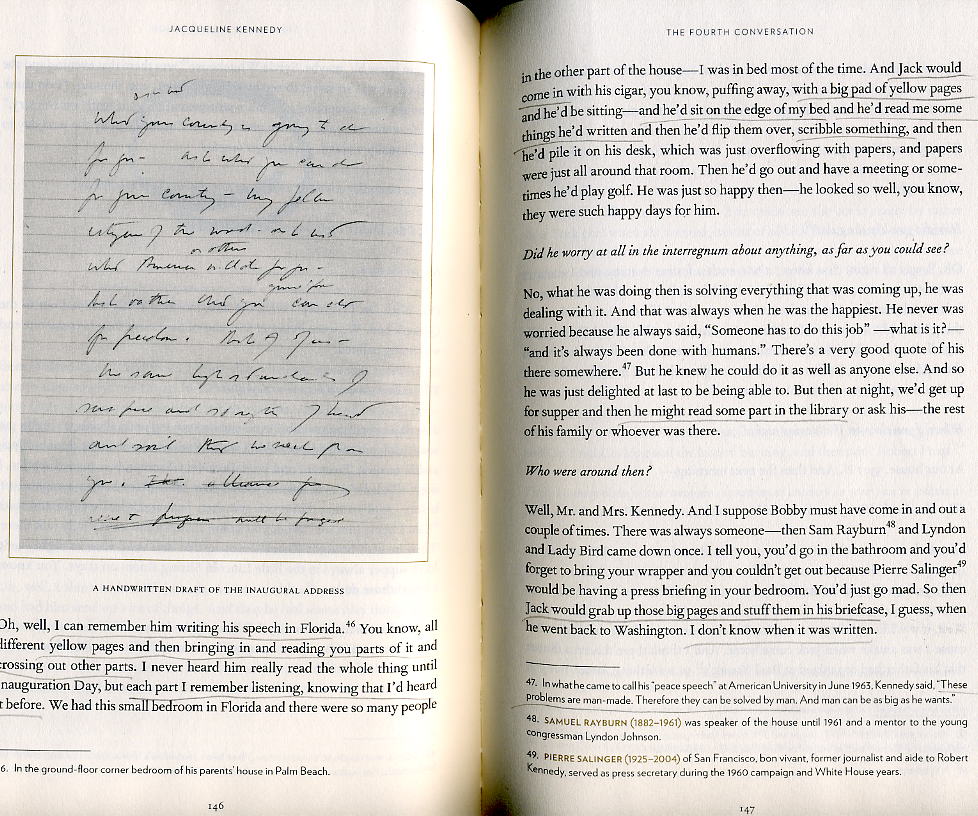 ...Schlesinger: What about Inauguration Day? Do you remember anything about the few days before Inauguration -- about the speech and son on? Was the President worried about that?
...Schlesinger: What about Inauguration Day? Do you remember anything about the few days before Inauguration -- about the speech and son on? Was the President worried about that?
Jackie: Oh, well, I can remember him writing his speech in Florida. You know, all different yellow pages and then bringing in and reading you parts of it and crossing out other parts. I never heard him really read the whole thing until Inauguration Day, but each part I remember listening, knowing that I'd heard it before. We had this small bedroom in Florida and there were so many people in the other part of the house -- I was in bed most of the time. And Jack would come in with his cigar, you know, puffing away, with a big pad of yellow pages and he'd be sitting -- and he'd sit on the edge of my bed and he'd read me some things he'd written and then he'd flip them over, scribble something, and then he'd pile it on his desk, which was just overflowing with papers, and papers were just all around that room. Then he'd go out and have a meeting or sometimes he'd play golf. He was just so happy then -- he looked so well, you know, they were such happy days for him.... But then at night, we'd get up for supper and then he might read some part in the library or ask his -- the rest of his family or whoever was there.... So then Jack would grab up those big pages and stuff them in his briefcase, I guess, when he went back to Washington. I don't know when it was written...
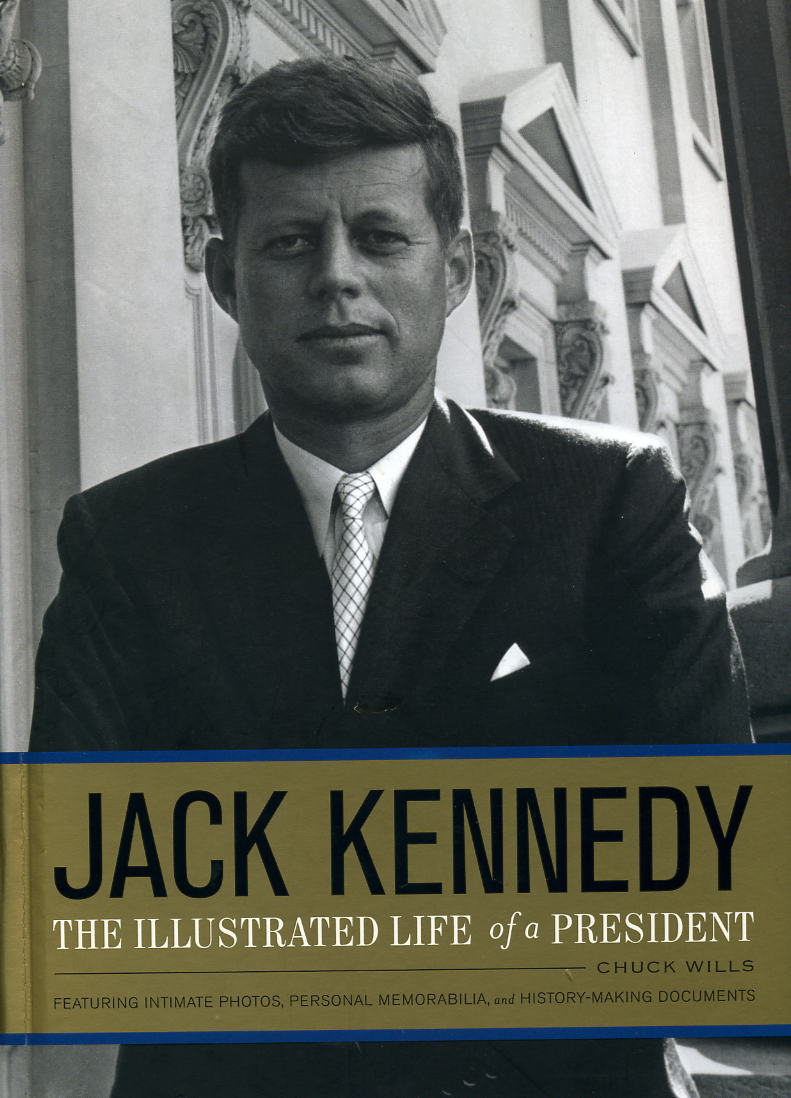


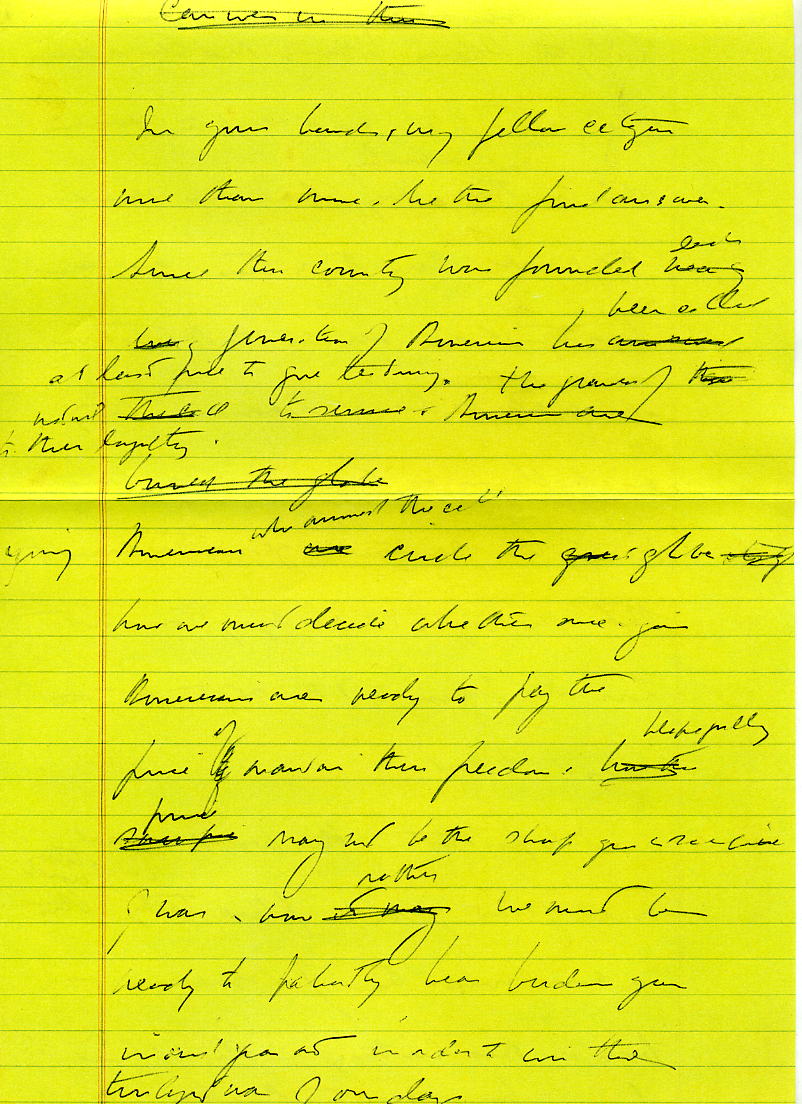
 ...Kennedy's handwritten excerpts from his Inaugural Address
...Kennedy's handwritten excerpts from his Inaugural Address

 HAPPY 95th BIRTHDAY JFK, May 29, 1917 - 2012
HAPPY 95th BIRTHDAY JFK, May 29, 1917 - 2012
OUTRIGHT GIFTS OF JFK (reader was 13 years old & in the stands when Frost recited his "Gift Outright" poem at JFK's Inaugural)
"THE GIFT OUTRIGHT" (recited by 87-year-old Robert Frost at President Kennedy's Inauguration)
SPEECHES OF JOHN F KENNEDY (audio and video), JFK Library & Museum
Jackie Jura
~ an independent researcher monitoring local, national and international events ~
email: orwelltoday@gmail.com
HOME PAGE
website: www.orwelltoday.com